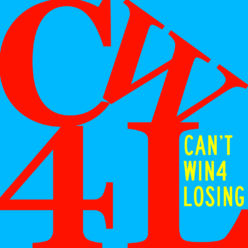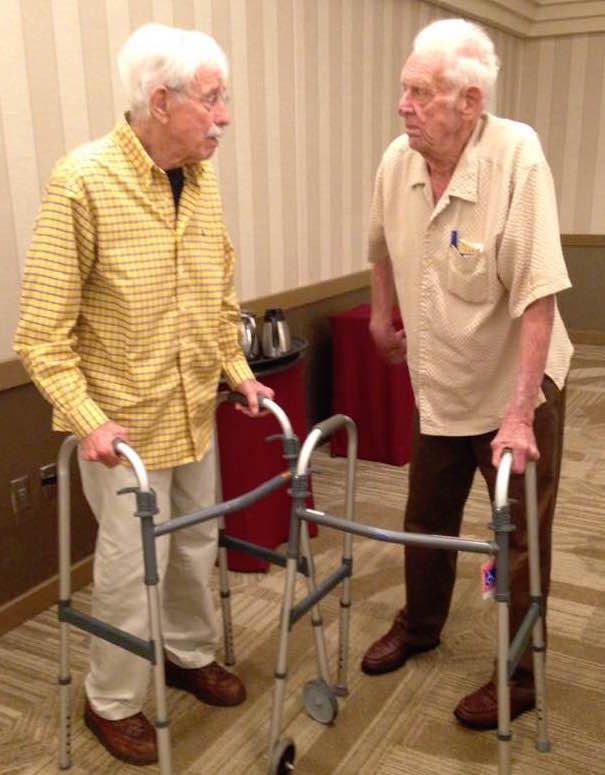My Fault: The Trey Junkin Story
New York Giants fans-and almost no one else-remember Trey Junkin. He was a long-snapper in the NFL longer than anyone, ever. For 19 years he was an anonymous perfectionist working in the game’s trenches. Until his very last snap. In the playoffs. As host King Kaufman reports, Junkin’s been living with that bad snap for 15 years.
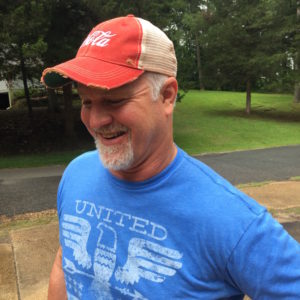 Trey Junkin was a long-snapper in the NFL longer than anyone else, ever. He can count on his fingers the number of bad snaps he made in 20 seasons in the NFL. But if you remember him, you remember him because of his very last snap. And it was a bad one. Also: You are a New York Giants fan.
Trey Junkin was a long-snapper in the NFL longer than anyone else, ever. He can count on his fingers the number of bad snaps he made in 20 seasons in the NFL. But if you remember him, you remember him because of his very last snap. And it was a bad one. Also: You are a New York Giants fan.
Junkin played in the NFL for 19 seasons — “it kinda pisses me off” that it wasn’t 20, he says.
Listen: Apple Podcasts | Spotify | Stitcher | Overcast (links soon!)
But he did play in a 20th season. He’d already submitted retirement papers when Giants general manager Ernie Accorsi called him and asked if he could snap for punts in a wild-card playoff game in San Francisco. Junkin, 41 and with a bad knee among other ailments, hesitated, but agreed.
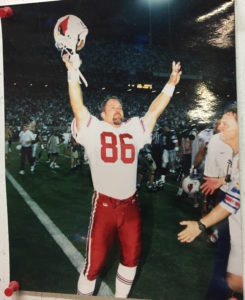
Junkin practiced with the Giants for only a couple of days, but head coach Jim Fassel asked him to add placekick snapping to his duties. Again, Junkin hesitated. He had barely practiced with the unit, and while it looks simple, the process of snapping on placekicks, and “that triangle: snapper, holder, kicker,” is complex.
“There’s a million things that can go wrong,” he says. “And there’s only one thing that can go right.”
Fassel insisted, and Junkin agreed.
Things went well in San Francisco until they didn’t. The Giants built a 38-14 lead late in the third quarter, with all punts and kicks going smoothly, but the 49ers launched a furious comeback to take a 39-38 with just over a minute to play. Along the way, a first disaster: A bad snap on a field goal attempt that would have extended the Giants’ lead to 41-33.
And then, with six seconds to go, the Giants lined up for what would have been the game-winning kick.
“My fault,” Junkin says about those two snaps. Not the whole game. Not the second-half collapse or the officiating mistake that ended the game rather than properly giving the Giants one more snap. But that last bad snap? “That’s mine.”
Giants fans still cringe at the mention of Trey Junkin’s name. His career was the 16th longest in NFL history, the sixth longest among non-kickers/punters. The names above him on that list: Jerry Rice, Brett Favre, Bruce Matthews, Darrell Green and Jim Marshall. Four Hall of Famers and one (Marshall) who should be.
For most of his 19-plus years in the league, he was anonymous, a perfectionist working in the game’s trenches. But all anyone remembers about him now is that one snap, his last.
He’s well aware of this. He’s thought about it a lot. He’s talked about it a lot. And he welcomed me to his home in Winnfield, Louisiana, to talk about it for Can’t Win 4 Losing.
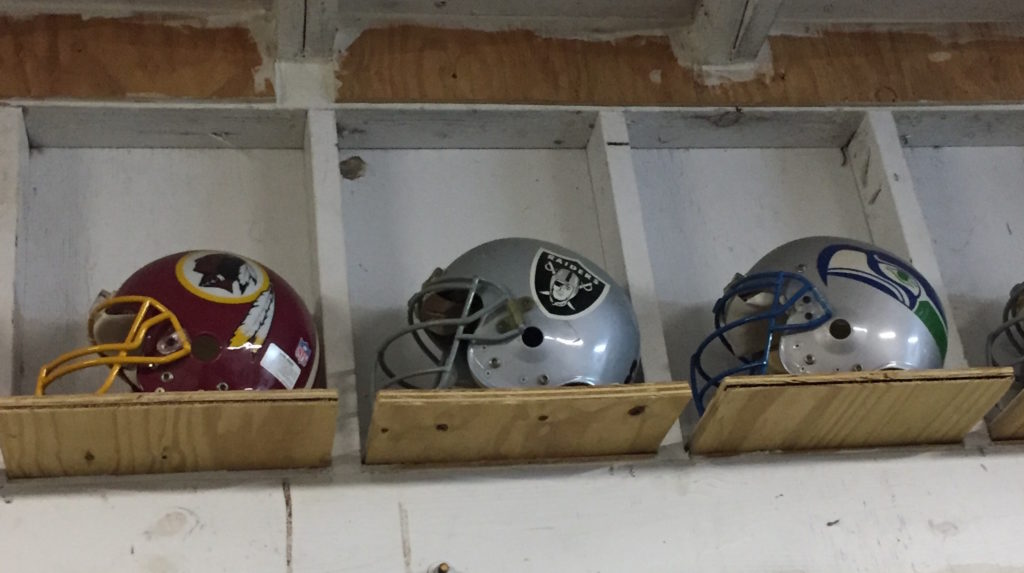
Note: All links to Amazon on this page are affiliate links, meaning we get a fee if you use the link to make a purchase.
Music
Opening Theme: “Big Swing Band” by Audionautix. (CC by 3.0)
Closing Theme: “Can’t Win For Losing” by Johnny Rawls, courtesy of Deep South Soul Records. Visit Johnny Rawls’ website and Facebook page.
His latest album is called Waiting For the Train.
Other Songs Used
In order of appearance:
“In the West” by Kevin McLeod (Creative Commons 4.0)
“Room With a View” by Jahzzar (Creative Commons 3.0)
“Horses to Water” by Topher Mohr and Alex Elena
“Call to Statesmanship” by U.S. Army Herald Trumpets
“Bravura” by U.S. Army Band
Except as noted: public domain or Creative Commons non-attribution license.
Did you catch the NFL Films music vibe we were going for?
Learn More
- As NY Giants prepare for San Francisco 49ers, the infamous Trey Junkin remains haunted by bad snap, says ‘I think about it every day’ by Kevin Armstrong, New York Daily News, 2012
- Giants’ Junkin lost reputation with one snap by George Willis, New York Post, 2012
- Trey Junkin not the scapegoat in Giants’ 2003 playoff loss to San Francisco 49ers by Dave D’Alessandro, Star-Ledger, 2012
- Where others might snap, Trey Junkin is a stand-up guy by David Whitley, Sporting News, 2012
- Ex-Giant Junkin’s bad snap vs. 49ers ‘still jolts me from sleep’ by Marc Sessler, NFL.com, 2012
- Snap Judgments: Because Arizona’s Trey Junkin can make a hike, he hasn’t had to take a hike, by Franz Lidz, Sports Illustrated, 2001
- A Visit With Trey Junkin, video by Seattle Seahawks Legends, 2015
We are a participant in the Amazon Services LLC Associates Program, an affiliate advertising program designed to provide a means for us to earn fees by linking to Amazon.com and affiliated sites.
